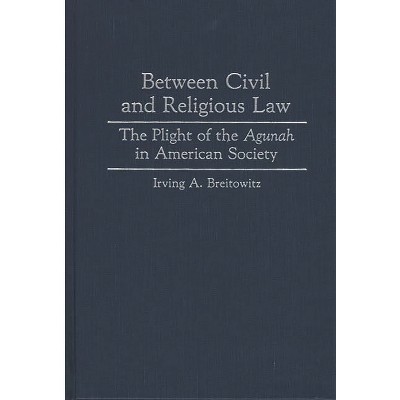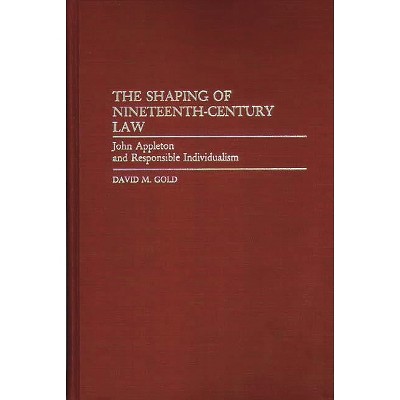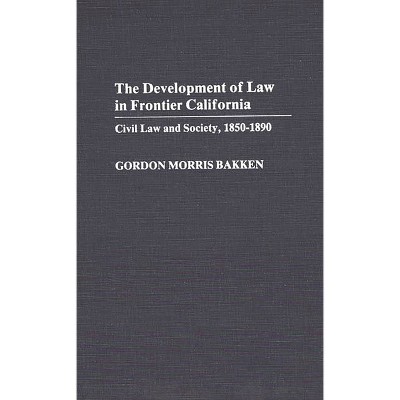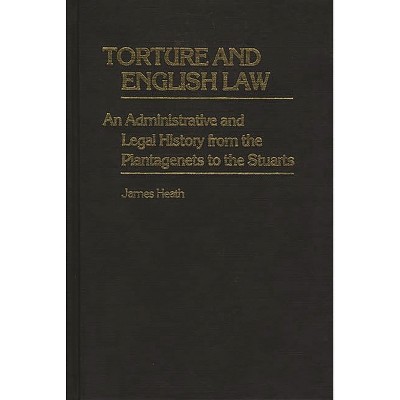Sponsored

Contract Law and Morality - (Contributions in Legal Studies) by Henry Mather (Hardcover)
In Stock
Sponsored
About this item
Highlights
- Combining natural law theory, reliance theory, and economic analysis to develop a jurisprudential approach, this is a prescriptive work presenting a vision of what contract law would be like if it were devoted to teaching moral virtue.
- About the Author: HENRY MATHER is Professor of Law at the University of South Carolina School of Law.
- 200 Pages
- Freedom + Security / Law Enforcement, Contracts
- Series Name: Contributions in Legal Studies
Description
About the Book
Combining natural law theory, reliance theory, and economic analysis to develop a jurisprudential approach, this is a prescriptive work presenting a vision of what contract law would be like if it were devoted to teaching moral virtue. The jurisprudential approach draws upon insights of Aristotle, Saint Thomas Aquinas, and other thinkers in the natural law tradition. The author applies this approach to selected legal issues to produce the only contemporary book that uses a natural law approach in prescribing specific reforms in American contract law.
Although this study is theoretical, the author, who practiced law for more than eight years, explains technical terms for non-specialist readers. The book employs a pluralistic moral theory and presents a serious challenge to contemporary jurisprudential theories that focus on some single dominant value. A key idea is that contract law should teach and employ certain moral principles when applied to legal issues related to enforceability, remedies, offer and acceptance, and nondisclosure. With respect to each issue, the author compares his proposed resolution with the prevailing current law.
Book Synopsis
Combining natural law theory, reliance theory, and economic analysis to develop a jurisprudential approach, this is a prescriptive work presenting a vision of what contract law would be like if it were devoted to teaching moral virtue. The jurisprudential approach draws upon insights of Aristotle, Saint Thomas Aquinas, and other thinkers in the natural law tradition. The author applies this approach to selected legal issues to produce the only contemporary book that uses a natural law approach in prescribing specific reforms in American contract law.
Although this study is theoretical, the author, who practiced law for more than eight years, explains technical terms for non-specialist readers. The book employs a pluralistic moral theory and presents a serious challenge to contemporary jurisprudential theories that focus on some single dominant value. A key idea is that contract law should teach and employ certain moral principles when applied to legal issues related to enforceability, remedies, offer and acceptance, and nondisclosure. With respect to each issue, the author compares his proposed resolution with the prevailing current law.Review Quotes
"Mather's book advocates a somewhat unusual position in the contemporary discussion of contract law....He claims that a fundamental purpose of contract law is to teach and enforce certain basic moral principles....He is attempting to reinvigorate a sorely needed discussion of the role of contract law in supporting society's moral commitments....Mather has made a significant contribution to the study of contract law....The book is very well organized and written in an exceptionally clear manner."-M. Cathleen Kaveny Associate Professor Notre Dame Law School
"The author's contribution to the understanding of modern contract law...is very important....The theory he develops...is a very impressive, highly original, and carefully worked out effort to ground legal doctrine on higher principles....His use of current ideas is refreshingly honest....The author's writing style is beautifully clear."-James Russell Gordley Shannan Cecil Turner Professor of Jurisprudence University of California at Berkeley
About the Author
HENRY MATHER is Professor of Law at the University of South Carolina School of Law./e He is the author of numerous articles on legal issues. His current projects include a series of articles dealing with various aspects of natural law jurisprudence.Shipping details
Return details
Frequently bought together
Trending Non-Fiction

















